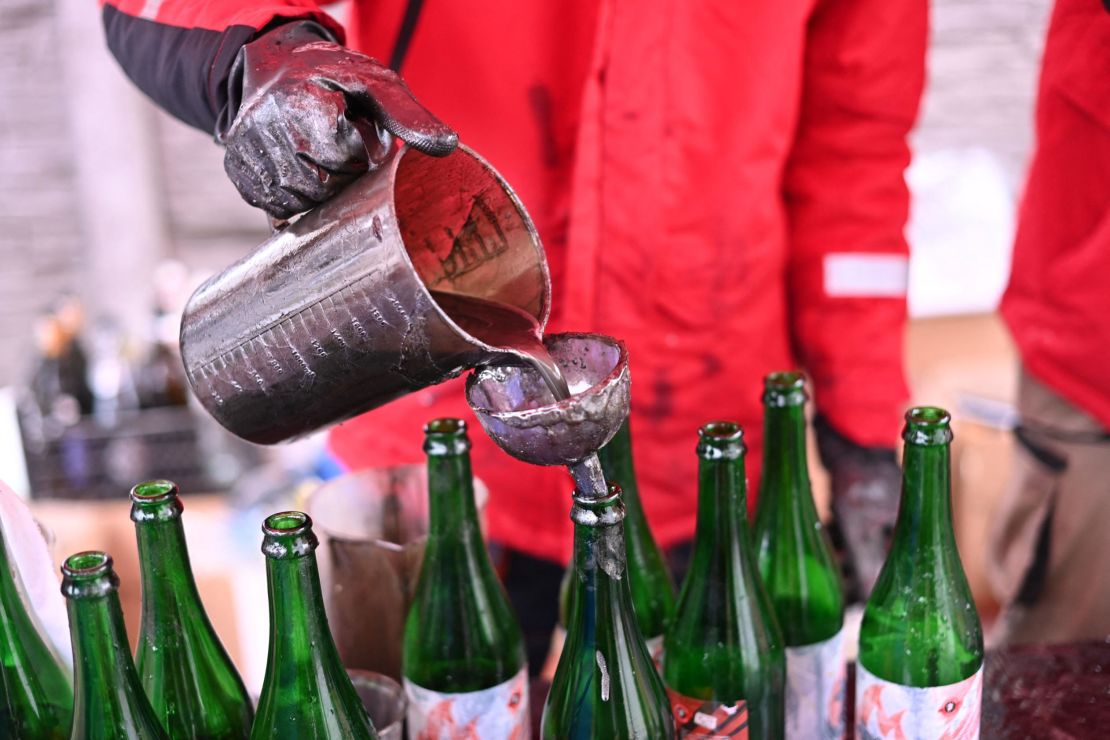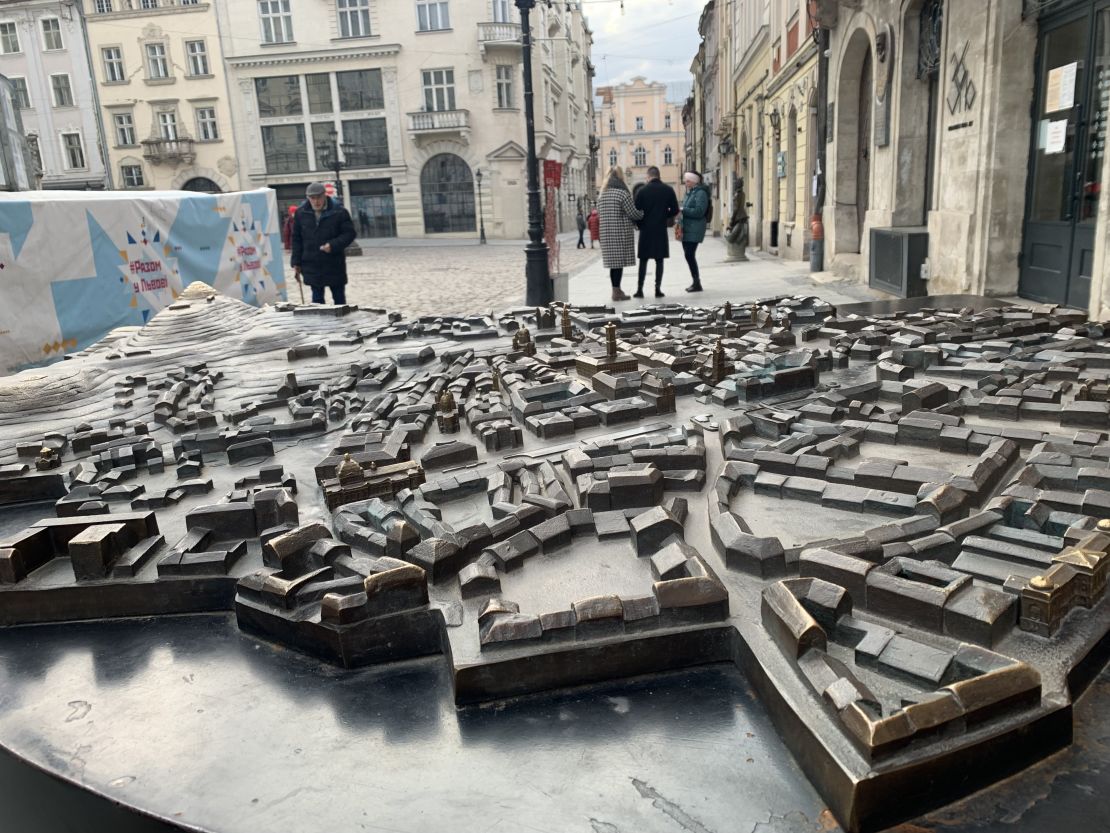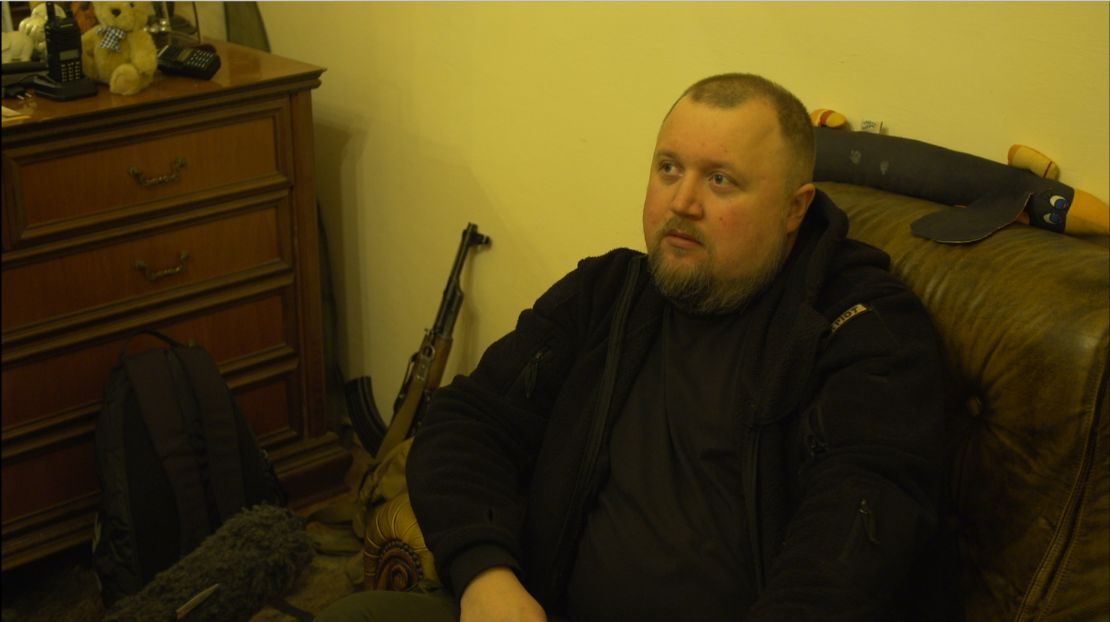A long line of men snakes out of an unassuming building in the western Ukrainian city of Lviv on an overcast day. An officer tells them to come back later. Too many people, he says, had enlisted that morning at Ukraine’s Territorial Defense Forces, the volunteer military unit of the country’s armed forces.
The scene recurs on nearly every street — office and manual workers, young and old, determined to take up arms. Nearly everyone here says they would rather die than see Russian ground forces enter their city.
“I don’t have any fear. We’ve had a war for eight years. This is a fight for our freedom,” said Taras Ischyk of the territorial defense, referring to the war Russian President Vladimir Putin sparked in the eastern Donbas region of Ukraine eight years ago.
Russia’s brutal invasion of Ukraine has so far left Lviv unscathed. Yet the city has been utterly transformed from a touristic hotspot that boasts picturesque cobble-stoned streets and baroque-style buildings to a hub of burgeoning resistance to Moscow’s military assault.
Checkpoints line the entrances to the city as volunteers fill up sandbags that fortify the city’s perimeter as well as its inner-city government buildings. Ukrainian police are dressed in combat gear. Many businesses have answered a call by the region’s authorities to join the war effort — namely by making Molotov cocktails.

The war effort in Lviv follows a nationwide trend where Russia’s invading forces have faced stiff resistance from both Ukraine’s military, as well as civilians who have taken up arms, slowing down the offensive’s progress significantly. Russia has acknowledged casualties but has yet to give exact figures,but US officials say the country has suffered heavier losses in personnel, armor and aircraft than expected.
In a press conference last week, Governor of the Lviv region Max Kozicki announced that Molotov cocktail production centers were being set up throughout the city, and called for a mass enlisting in the territorial defense.
Yuri Zastavny has converted his Lviv beer brewery into a factory for Molotov cocktails. They’ve made hundreds so far, Zastavny says, and distributed them to civilian defense centers in the Lviv area.
Zastavny was encouraged to do it by his employees, he told CNN.
“Everyone is mobilized to the highest extent possible … people who have technical skills do technical things. People good at media do media things,” he said. “That’s why I think Russia has no chance here.”
The heightened sense of preparedness is an unexpected turn for Lviv. On the first day of Russia’s invasion, several military facilities were attacked in the wider region. Every day since, air raid sirens have blared repeatedly. Across the city, people have descended into basements, re-emerging when the alarms stop.
Just 50 miles away from the border with Poland, the city is on NATO’s doorstep. When the US warned that an invasion was imminent, several Western embassies relocated there from the capital Kyiv, believing it to be safer. But that sense of security has since been shattered and the city’s authorities already believe that they are the target of covert military operations by the Russian army.
“There are Russian infiltrators in Lviv. This is a fact,” Governor Kozicki told CNN emphatically. The governor’s office says they believe “sabotage groups” have been marking various spots in the city as targets for Russian forces to later attack.
Neither the governor nor his office have provided evidence of the alleged infiltrators or the plots of the alleged sabotage groups, but the atmosphere in Lviv is thick with suspicion.
Cafe-goers are sometimes frisked at the entrance. The city’s inhabitants are much less forthcoming with journalists than they were prior to the invasion.
“I can barely remember what life was like a couple of days ago when everything was safe,” said 30-year-old Sergei Kuchman, who has been receiving scores of fleeing Ukrainians at a hostel he manages. “Everything changed in a moment.”

At a historic church, Micha, 24, and his girlfriend inquire about bomb shelters; many people who don’t have basements have taken cover in crypts.
“What we can’t find is a proper shelter for an atomic attack,” he said, his voice trailing off as his girlfriend gestures to him to stop talking.
He ducks into an alleyway but the fear in his mind hangs in the air after he’s left. On Sunday, Russian President Vladimir Putin put his country’s nuclear deterrence force on high alert, raising the specter of nuclear war.
A few days ago, this would have been an unfathomable prospect, but no one here says they can put anything past Putin anymore, especially after he invaded Europe’s second-biggest country last week.
Hours before the invasion began, a group of men were meeting at a nondescript office on the ground floor of a Soviet-style building in the outskirts of Lviv. They were organizing a “national resistance movement in Lviv,” 42 year-old Andriy Djakovych said.
Djakovych is a hulking, slow-moving man with labored breathing. He is a senior lecturer at the local police academy.
When he served in his country’s 2014 war against Russia in the Donbas region as a paramedic, he was left with a brain injury that means he can no longer serve in the army, or the territorial defense. Yet he still wants to join the resistance.

He said his group had no name or political affiliations, and that they were operating on the belief that Lviv figured in Putin’s invasion plans, even if to a milder degree than eastern and central parts of the country.
“I don’t think (Ukrainian President Volodymyr) Zelensky has prepared us for war,” Djakovych said at the time. “We want to create our own patriotic community that the state in Ukraine can rely on.”
Days later, CNN met with Djakovych again. This time we were directed to a building in central Lviv where we used a password to enter.
Djakovych’s towering figure appeared in military attire. “Patriot” — the name of his little-known group — was emblazoned on his shoulder. The walls were draped with the flags of ultra-nationalist Ukrainian movements, including the paramilitary group Azov, whose logo is the Wolfsangel, a symbol appropriated by Nazi Germany.
There were several swastikas in the room, including one on a candlestick. Other veterans, decked out in military attire, brandished rifles.
The “Patriots” are still tight-lipped about their ideological affiliations, but their ultra-nationalist leanings conjures up a less visible, yet harrowing dimension of this conflict.
“I don’t consider myself a Nazi or a neo-nazi,” said Djakovych. “I’m just a patriotic citizen of my country.”
CNN’s Atika Shubert, Jim Sciutto and Shelby Vest contributed to this report from Lviv, Ukraine.
